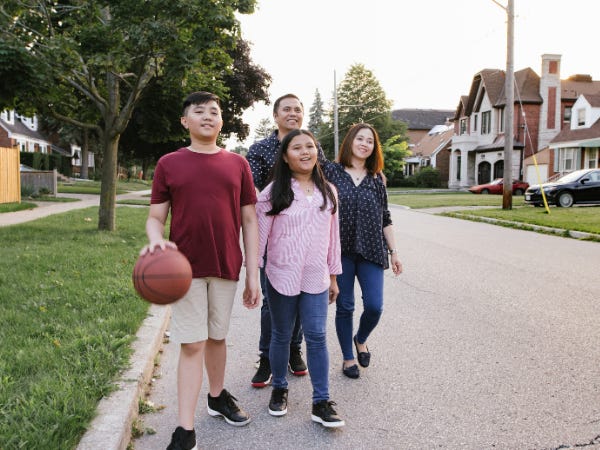How to support your child's mental health
What parents can do to support mental health and recovery
Hello! I hope you and your family are doing well!
When your child faces a mental health issue like an eating disorder, anxiety, or depression, it's usually pretty overwhelming. Our healthcare system is less of a system than a labyrinth, and getting the support can be challenging.
Today I wanted to share three tips for what you can do if your child is facing a mental health issue:
1. Physical health
Our mental health rests on a three-legged stool of basic physical health. The three legs are: food, sleep, and hygiene. While it is undoubtedly hard to ask someone who is struggling mentally to take care of these three essentials, it’s also, well, essential.
If your child is struggling right now, you can help by taking over as much as possible in these areas. This is why a feeding schedule is a major part of eating disorder recovery, but it also applies to any mental health situation.
Our brains need regular, adequate meals to function. It’s very hard to make progress on mental health without enough food. Your child needs to eat a balanced meal (carbs, fat, and protein) every 3-5 hours throughout the day to maintain the brain function they need to feel better.
As long as your child lives with you it’s a good idea to insist on the bare minimum requirements of physical health by setting a sleep schedule, feeding them regular meals and snacks, and reminding them to bathe, brush their teeth, and take care of other basic acts of hygiene.
One last note on this is that recreational use of substances like tobacco, alcohol, weed, and psychedelics, even in small amounts, are not recommended for anyone with a mental health condition. If your child lives with you, you can take steps to limit their access to and use.
2. Social health
Most media headlines focus on food, exercise, and weight when talking about health, but we are highly social animals, and it turns out that the most important factor in health is actually the quality of our social connections. Long-term meta-analyses (the most reliable form of scientific analysis) have shown that social relationships are more important than health behaviors like not smoking, avoiding alcohol, and getting a flu shot.
And many people are surprised to learn that social relationships FAR outweigh the impact of eating vegetables, exercising, and BMI on our health. It’s surprising, right?
You can help your child have better mental health by creating a positive social environment in your home. Whether it’s just the two of you or a multi-generational family living under the same roof, your household’s social environment is crucial to your child’s mental health.
Next, you can help your child build their social skills and expand their social network. It’s OK to start small. Just one IRL (in real life) friend can make a massive difference in mental health.
And it must be said that while social media has the word “social” in it, it’s not a substitute for social engagement and often interferes with it. Social media has a negative impact on kids’ mental health, so it’s a good idea to set limits and boundaries around it.
3. Professional care
Of course professional care is an important part of your child’s mental health, but I put it third on the list for a reason. A great therapist can make a huge difference. And a medical doctor and/or registered dietitian should monitor your child’s physical health during recovery. But unless they’re in residential treatment, the bulk of your child’s day-to-day life is with you and your family. So professional care is important, but not more so than family care.
The last thing I’m trying to do here is put more pressure on you! I know you are already doing absolutely everything in your power to help your kid feel better, so I just wanted to give you an idea of where you can focus your energy in this challenging time. I hope it’s helpful, and please let me know if you’d like some help with this!
Ginny Jones Parent Coach / More-Love.org
New project! Recovery by Ginny Jones
Online Course: How To Help Your Child Be Less Anxious When They Have An Eating Disorder
An on-demand masterclass to help your child be less anxious when they have an eating disorder







